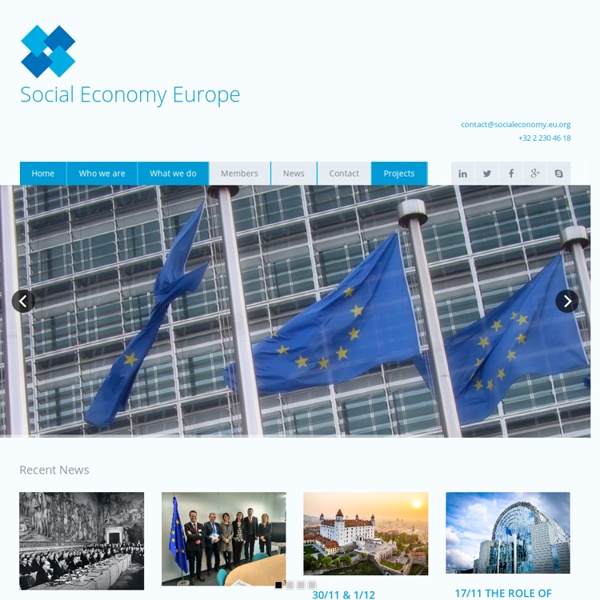Social Economy Europe - Social Economy Europe

CJDES - Accueil
Le CEGES
Communauté des acteurs de l'économie sociale et solidaire - Tessolidaire - ESS
Association for Social Economics
Ressources Solidaires, Emploi et Actualité de l'économie sociale
Mécénat culturel
L'autre économie
Le Retour du Jeudi
Ecouter le contenu de la page : Le Groupe SOS vous intéresse ? Vous souhaitez en savoir plus sur l'entrepreneuriat social, la consommation responsable, la lutte contre les exclusions, la solidarité internationale, le développement durable, les finances solidaires, le développement des associations et des entreprises sociales... ? Venez échanger avec nous de façon conviviale et informelle lors des soirées « le Retour du Jeudi ». L'occasion de refaire le monde autour d'un verre avec les équipes et les amis du Groupe SOS. Pour être informé des prochaines dates, inscrivez-vous ! Les adresses que nous collectons par le biais de ce formulaire sont destinées à l'usage exclusif du Groupe SOS et ne sont pas transmises à des tiers.
Related:
Related:



